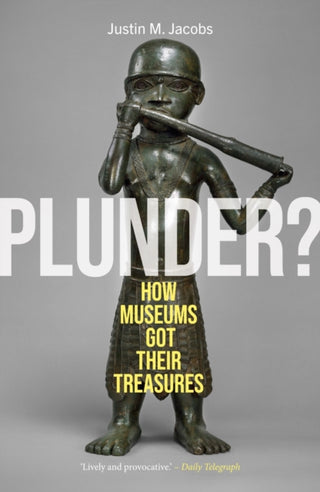-
A provocative reassessment of a popular narrative that connects museums, the antiquities trade, and theft. In this thought-provoking new work, historian Justin M. Jacobs challenges the widely accepted belief that much of Western museums treasures were acquired by imperialist plunder and theft. The account reexamines the allegedly immoral provenance of Western collections, advocating for a nuanced understanding of how artifacts reached Western shores. Jacobs examines the perspectives of Chinese, Egyptian, and other participants in the global antiquities trade over the past two and a half centuries, revealing that Western collectors were often willingly embraced by locals. This collaborative dynamic, largely ignored by contemporary museum critics, unfolds a narrative of hope and promise for a brighter, more equitable futurea compelling reassessment of one of the institutional pillars of the Enlightenment.
A provocative reassessment of a popular narrative that connects museums, the antiquities trade, and theft.
In this thought-provoking new work, historian Justin M. Jacobs challenges the widely accepted belief that much of Western museums treasures were acquired by imperialist plunder and theft. The account reexamines the allegedly immoral provenance of Western collections, advocating for a nuanced understanding of how artifacts reached Western shores. Jacobs examines the perspectives of Chinese, Egyptian, and other participants in the global antiquities trade over the past two and a half centuries, revealing that Western collectors were often willingly embraced by locals. This collaborative dynamic, largely ignored by contemporary museum critics, unfolds a narrative of hope and promise for a brighter, more equitable futurea compelling reassessment of one of the institutional pillars of the Enlightenment.

